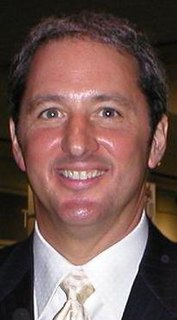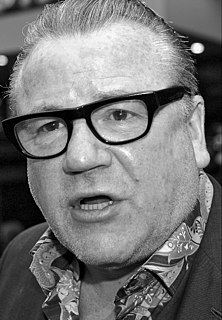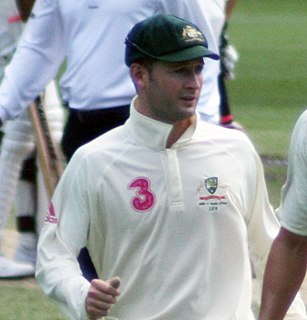A Quote by Harold E. Varmus
Every cancer looks different. Every cancer has similarities to other cancers. And we're trying to milk those differences and similarities to do a better job of predicting how things are going to work out and making new drugs.
Related Quotes
If we were able to put every single solitary cancer cell that has a genomic - had their genome done in one place, we have the computing capacity to go in and look at what are the similarities and dissimilarities that make them work and don't work. And every expert will tell you, it is probably gonna exponentially increase the capacity to be able to find, A, cures, B, vaccines, and C, turn some cancers into chronic diseases, rather than it cost you your life.
There's about 100 different cancers in a cancer cell. And so what we're finding out is, they're finding out ways to deal with one or two of the cancers there, with certain medicines. But they don't know why, if you have that cancer and I have that cancer, and I get the therapy and you get it, I don't live and you live. That - they don't know why.
Cows given genetically modified growth hormones make more milk, but have painful swollen udders, have ulcers, joint pain, miscarriages, deformed calves, infertility, and much shorter life spans. Their milk contains blood, pus, tranquilizers, antibiotics, and an insulin growth factor that can cause a fourfold increase in prostate cancer and sevenfold rise in breast cancer. This is the milk used in our school lunch programs and served to our children. This is the milk that you buy every day. This is the milk used in all cheeses, yogurts, butter, and cream.
On every job you do, you've got to raise your game. My ambition is to just get better and better every job you do - you should never stop trying to get better. You have to teach yourself new things - I don't think you necessarily learn them from other people because you have your own style of doing things, but hopefully you get better.
A cancer is not simply a lung cancer. It doesn't simply have a certain kind of appearance under the microscope or a certain behavior, but it also has a set of changes in the genes or in the molecules that modify gene behavior that allows us to categorize cancers in ways that is very useful in thinking about new ways to control cancer by prevention and treatment.
Being treated by a doctor who specializes in your kind of cancer is so important, especially for those of us who have rare or very rare cancers. They will have access to newer treatment options that may be offered only at big academic cancer centers, so you don't miss out on treatments that could help you.
































